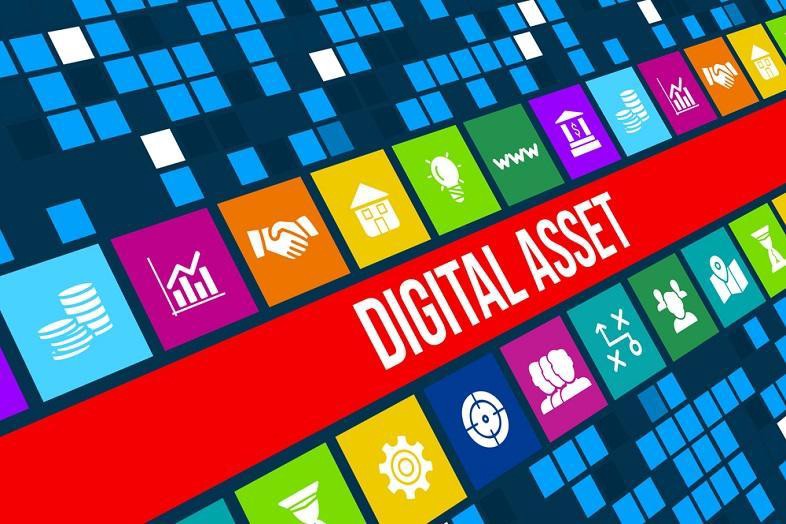There is a silent revolution happening today in the early-stage investment space. It’s a confluence of all the various technologies and investment methodologies of the past three decades, and yes, it is going to be amazing. What am I talking about? Digital securities, or as they have been previously called: security tokens (I will probably use these two terms interchangeably during this post).
Let’s start from the beginning. What is a digital security?
A digital security is essentially a blockchain-based representation of:
- financial assets, such as stocks, bonds or some other types of monetary collateral
- physical assets such as gold, real estate, or simple fiat money in the bank
This representation takes the form of a digital token, that is a set of numbers that securely symbolize a one-to-one relation with the underlying asset. I will not go into the whole concept of blockchain cryptography, but to make a long story short, using blockchain tokens for digital securities ensures that there can be only one copy of each token and that just one individual can own it at any given time. Using blockchain then ensures that fraudulent transactions (i.e., sending the same token to two different people) are near-impossible.
But what can you do with a digital security?
A digital security (token) is used therefore to represent ownership over some underlying asset. This means that if you hold the token then the underlying asset actually belongs to you. Much the same as any digital document, you can either keep the token to yourself or send it to someone else. However, since there can only be a single copy of the token at any point in time, sending it to someone else means that you are giving them ownership over the underlying asset.
This opens up a whole world of potential peer-to-peer trading possibilities that today are very difficult to perform. For example, if today I hold equity in a company, and I wish to sell it to someone else (provided this transaction meets all the regulatory restrictions), I will need to go through a process (the exact process is very much jurisdiction dependent) that usually involves some 3rd party mediation (e.g., a broker), and a slew of paperwork. With tokens, transferring ownership can be as easy as pressing a button on a mobile app.
Why do we need blockchain for this?
Distributed ledger technology, a.k.a. blockchain, is the technology that makes all this possible. Before blockchain, the information about ownership of assets had to be held by some company, for example, a bank, and all transactions had to go through that company. This limited trading potential and usually helped that holding company make a lot of money. By using blockchain, we can remove the intermediaries and enable the owners of the tokens themselves to be in control of their assets.
Ok, I think I understand now. But why is this so revolutionary for investing?
Investing and blockchain have been getting a bad rap lately because of the many scandals and frauds related to initial coin offerings (ICOs). However, digital securities are a new way of merging the old (traditional investing techniques) with the new (blockchain tokens) to create new and incredible ways to invest in assets in general, and in companies in particular. To understand this, we need first to understand current investment methods.
Today, if you want to invest in a company that isn’t traded publicly, you generally have two ways:
- Invest directly, or as part of an investment group (e.g., crowdfunding, angel clubs) in exchange for equity
- Invest indirectly, for example, through a venture capital firm in exchange for some promised future returns
Once you have invested, you are generally locked-in with your investment for a long period of time, usually 8-10 years, before there is any type of “exit event”, such as an M&A or an IPO, and you can liquidate your investment. If in some point in the middle, you wish to sell off your investment, you will be met with bureaucratic obstacles and will probably need to discount the value of your shares on some secondary market. Selling off your investment in a company may also reflect badly on the company itself.
As someone who works mainly with early-stage startups, it is not uncommon for me to see a startup’s CEO having to spend valuable time helping early investors sell some of their equity to finance a son’s wedding, or for some other financial emergency.
With digital securities, all this can be a part of the past.
How? Digital securities enable the digitization of the investment itself. This means that the investor can receive a financial asset from the company (for example equity) in the form of a blockchain token. This token is essentially tradable from day one on security exchanges, which provide immediate liquidity to the investor.
Is this really such a big deal?
I think so. Let me tell you why.
Once investing through digital securities becomes more commonplace several things will make this market really stand out. Here are the key reasons that digital securities investing is a real breakthrough for investors:
- Liquidity – as I stated before, the main advantage that digital securities provide is the possibility of trading your tokens at any point in time. For early-stage investors, this means that they can invest in companies during their initial stage and sell off their investment (hopefully at a substantial profit) after a year or two and/or once that company hits a major milestone, instead of having to wait for an exit event. For later stage investors, this means that they can purchase investments in a company at any stage without having to commit to being part of a large investment round, thereby diversifying their investment portfolio
- Valuation – one of the main problems with early-stage companies is the ability to evaluate their worth. Many of these companies are losing money, and yet are worth many millions/billions of dollars. Today the only real way to get valuated is by having someone invest at that valuation (which is kind of reverse logic). The real result of this thinking is that venture-backed companies keep chasing investments just to increase their valuation for the earlier investors. Since digital securities are tradable on a securities exchange from day one, they are, for better or worse, valued by the market. This is the exact mechanism that works for the stock exchange and is dependent on the investor’s belief in the potential of the company as well as its ongoing performance
- Versatility – traditional investors put in capital and receive equity in trade. However, digital securities enable companies to compensate investors in additional ways, ways which may be more lucrative for the investor. For example, a real estate company can award investors in a commercial project with a share of all the rent generated by that project, or a services company can provide its investors (e.g., its token holders) with a lifetime discount on services. The only limit here is the imagination
- Transparency – one of the guiding principles of blockchain is its openness to everyone. An investment in a blockchain-based token is no different. A company issuing tokens for investors must provide full transparency to its operations (within commercial limitations) in much the same way that a public company must. This means periodical reports as well as connecting as much of the company’s financial activities to the blockchain itself
- Globalism – one of the main problems for investors is investing in opportunities outside of their own country. This is due to many reasons, but some of them can be easily addressed by digital securities, which enable easy cross-border transfer of value. This means that investors can easily invest outside of their country as well as trade in their investments internationally
- Compliance – each jurisdiction has its own rules and regulations regarding investments and keeping track of those rules is no small headache. Using blockchain-based smart contracts, the per-jurisdiction rules can be coded into the digital security itself which makes it self-compliant, i.e., no transaction that is not compliant can be performed on it. Headache – gone!
- Control – when investing in publicly traded companies the investment and exchange platform must be decided in advance and from that moment on the company is subject to its rules and whims. Does a company want to be traded on the NYSE? They must pay anywhere from $35,000 a year and more for the listing. Does an investor want to trade the NYSE issued stock? Just the list of fees is enough to make you rethink it. However, in digital securities, there is a complete separation between the tokenization platform (i.e., the company that will create the digital securities) and the trading platform (i.e., the digital securities exchange). This also means that digital securities can be traded on several exchanges simultaneously and that you can sell a digital security you purchased on one exchange to someone else on a different exchange. You control where and how much you are willing to pay for any trade
- Robots away – a major issue with today’s stock market is the manipulation by high-frequency trading algorithms. Blockchain-based exchanges make this essentially impossible. Initially due to the actual limitations on the number of transactions that a blockchain can perform every second (known as TPS – transactions per second), but once that is solved, these manipulations will be blocked by smart contracts that will be built directly into the token itself
So, as you can see, there are major advantages for investors in using digital securities as their investment vehicle.
For companies too, digital securities offer a great way of raising capital, for a specific project or for the company in general, but I think I will address this in a future blog entry.
One final point which must be stressed: be careful
The fact that digital securities are an amazing investment vehicle does not mean that it is without its risk, as any early-stage investment is. Digital securities are just the form of investment. And like with any investment, it is the job of the investors to do a thorough due diligence on their investment – make sure that the company is legit, the team is serious, the business model is sustainable, the strategy is viable, and the opportunity is as good as it seems.
In my next blog entry (which hopefully will not be a year from now) I will discuss how digital securities investments impact early-stage companies that are seeking funding.




